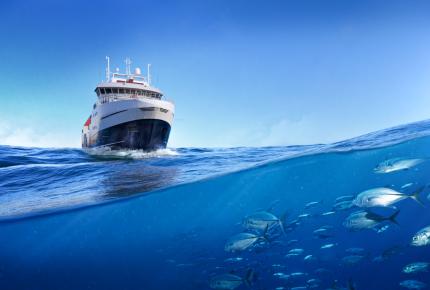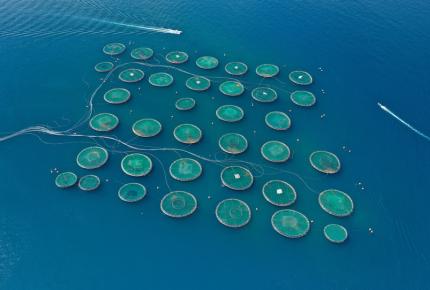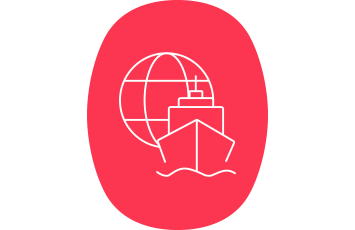New Strides towards Social Accountability in the Fishing Industry
Commercial fishing ranks as one of the most dangerous professions in the world, a fact officially recognised by the International Labour Organisation (ILO) in 2007. But a low take-up of global standards to improve working conditions has created a need for other social accountability measures.
The ILO’s Work in Fishing Convention (C188), which lays out minimum requirements for onboard conditions, medical and social care, came into force in 2007 but has so far been ratified by only 20 countries. Signatories include just one Asian country, and only two nations in the Americas, limiting its reach globally.
Non-government agencies (NGOs) are increasingly pressurising retailers, brand owners and governments to improve working conditions for deep-sea fishing crews. For example, the US government has officially warned importers against the risk of sourcing seafood from forced labour in Asia, spurred on by threats of legal action by NGOs.
Responsibility & Sustainability
Today, a variety of voluntary private standards exist to help shipowners protect workers, providing guidance and best practice measures for the fair treatment of fishermen. These are notably the Fairness, Integrity, Safety and Health (FISH) Standard for Crew, and the Responsible Fishing Vessel Standard (RFVS).
Both standards address working conditions, labour contracts and onboard accommodation. The RFVS additionally covers the sustainability aspects of catching and transporting fish.
Ensuring Ethical Standards
The FISH standard was created by an international group of fish harvesters. The organisation offers an independent and accredited third-party certification program.
Its goal is to achieve decent labour practices for crew in wild-capture fishing, and is aligned with internationally recognized best practices for responsible working conditions in the fishing sector. Seafood buyers want credible assurance that the fishermen and women which produce their seafood are treated fairly, with safe and proper work conditions.
The objective is to establish a set of clear, measurable performance thresholds which are suitable for use in audits by third-party certification bodies.
The standard is adapted primarily from the ILO Work in Fishing Convention (C188), as well as the related ILO Recommendation no. 199. In addition, the standard reflects the intent of the IMO Torremolinos Convention for the Safety of Fishing Vessels.
It also incorporates elements from the IMO Convention on Standards of Training, Certification and Watchkeeping for Fishing Vessel Personnel (STCW-F) and the United Nations Universal Declaration of Human Rights (UDHR). Furthermore, it addresses some of the more general concerns that have been voiced in recent years by industry, researchers, and non-governmental groups.
Global Market Leader for Fishing Vessels
Bureau Veritas Marine & Offshore
Bureau Veritas has been closely involved in the certification of seafood operations for many years. Today we are also helping fishing companies demonstrate social accountability, comply with recognized standards, and minimize reputational risk.
Aligned with Sustainability Initiatives
Lastly, it is aligned with the developing work of the Sustainable Supply Chain Initiative - the Consumer Goods Forum-initiated work to benchmark third party certification systems for labour conditions.
FISH’s main aims are to emphasize socially responsible labour practices and ethical behaviours (e.g. no child labour, no forced labour, protection of migrant fishers); to establish fair conditions of service for all fishers (e.g. fisher work agreement, fair remuneration, social security); to ensure the safety and health of all fishers (e.g. rest periods and hours of work); and to provide decent accommodations, water and food (e.g. accommodations are appropriate, spaces are comfortable and safe, appropriate food and potable water).
Joint Resolution on European Standards
European stakeholders including Europeche, the Association of National Organizations of Fishing Enterprises in the EU, and the European Transport Workers’ Federation (ETF) have now published a joint resolution on seafood social standards and supply chains.
It calls for the ratification and implementation of ILO C188 as the main international ‘guardian’ of labour standards, and the full inclusion of internationally agreed private labour standards.
It takes many of its elements from the Food and Agricultural Organisation (FAO) Declaration for Sustainable Fisheries and Aquaculture (COFI, 2021).
Becoming an Employer of Choice
Our certification services help clients conform with recognized sustainable standards, demonstrate full traceability, and improve brand image. These services are available across the full seafood supply chain, from Producers to Traders, Importers and Processers, and finally to Retailers.
Recently, Bureau Veritas completed a series of audits to FISH standard for NovaNam, a subsidiary of Spain’s Nueva Pescanova Group in Namibia. The audits covered 9 vessels as well as the company’s head office.
Miguel Angel Tordewsillas, CEO of NovaNam, commented:
“Internally, this validates that our way of work, and that our systems, benefits and social focus add to the wellbeing of our crews. From an external point of view, it makes us an ‘employer of choice’, as seen from the various lenses both private and public.”
Performing Social Audits to Protect Fishermen
Bureau Veritas has a long history of helping clients develop more responsible fishing practices, notably in the area of sustainability, and more recently in social accountability. Bureau Veritas performs audits for a variety of voluntary standards, including FISH and RFVS, to help shipowners protect workers and address working conditions, labour contracts and onboard accommodations.
We can conduct audits and certification of fishing vessels and manning agencies to demonstrate social accountability and minimise reputational risk. Meanwhile Bureau Veritas auditors are trained to conduct Maritime Labour Convention audits and verify onboard conditions, helping vessel owners demonstrate compliance.












